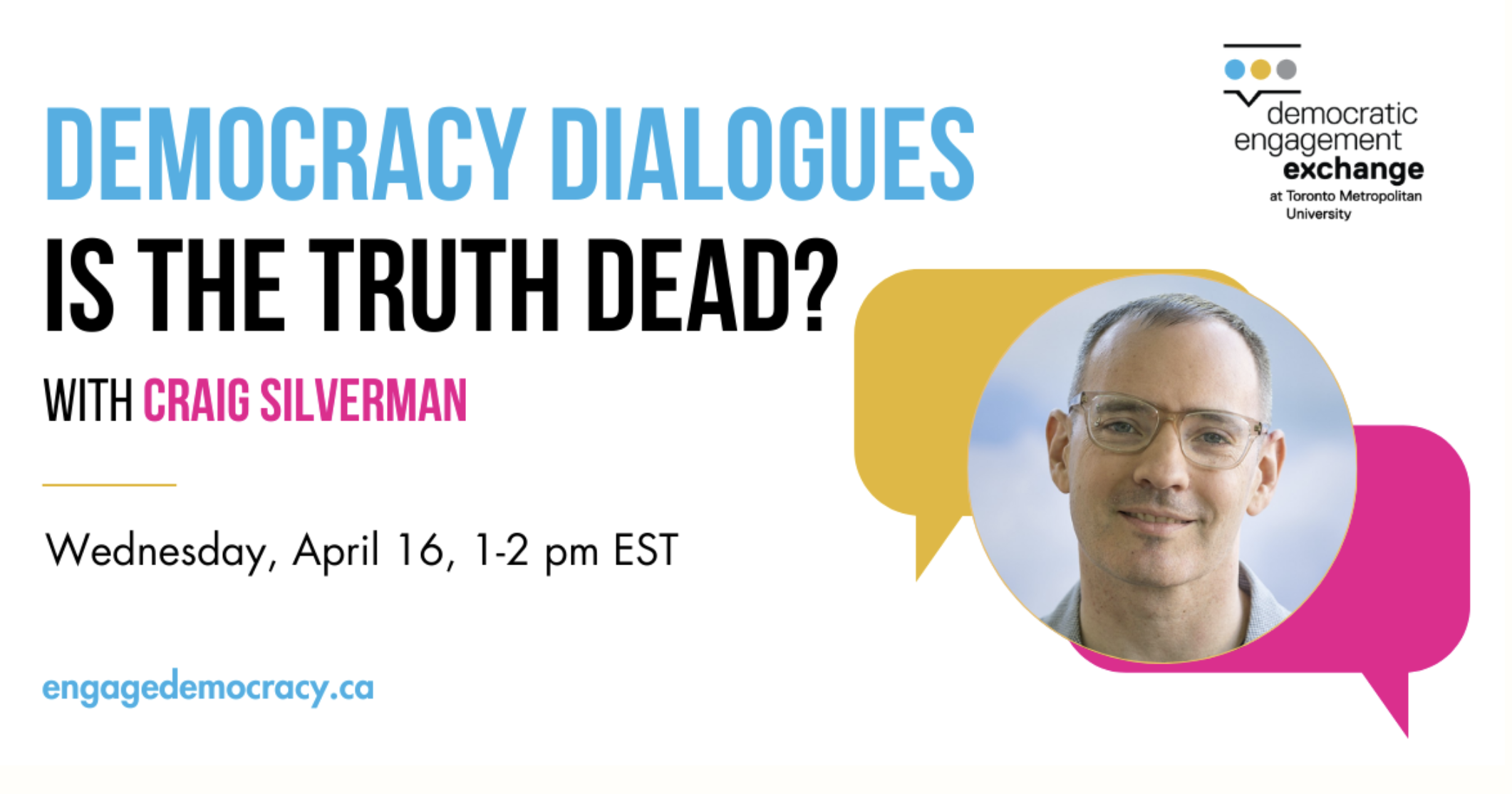DEMOCRACY DIALOGUES
Season 6: Trust & Participation
Recent EPISODE
Democracy Dialogues host Victoria Kuketz, welcomed Vandinika Shukla, Deputy Director of Programs at the Obama Foundation.
In a time when our democratic values are increasingly under pressure, here in Canada and around the world, many are asking: How do we stay true to our convictions while reaching across deep and fractured divides? What are the consequences if we don’t make that reach?
Drawing on her work at the Obama Foundation supporting young changemakers and going beyond the engagement checkbox, Vandinika will brings global perspective on what it means to effectively lead in a pluralistic society when the ideals at the heart of a liberal democracy are under attack.
This conversation focused on the tension that community leaders and institutions are facing today: how to engage people with opposing viewpoints and how to foster meaningful and lasting trust.
Can pluralism be more than an idea? Hear from Vandinika Shukla about the work she is leading at the Obama Foundation as they champion core democratic ideals in a moment where the very concept of a pluralistic society is under attack.
About our Speakers
Vandinika Shukla is the Deputy Director of Global Programs at the Obama Foundation where she works with change makers in the US on building common ground, trust in institutions and pluralism to strengthen democratic culture.
Previously, she worked on AI, securing democratic processes and global elections with Democracy Forward at Microsoft. Vandinika’s expertise spans the intersection of human rights, diplomacy, tech policy, and democracy.
Vandinika has incubated the Practicing Democracy Project at the Harvard Kennedy School where she taught movement building, storytelling, and social change to changemakers in the U.S. and across 16+ countries. She was also a Strategist at MIT Media Lab’s Center for Constructive Communications where she built AI tools to amplify underheard voices in policymaking and journalism, and facilitate dialogue across differences.
Prior to her time at Harvard, Vandinika designed gender policies to implement the Sustainable Development Goals, and worked on human rights compliance and women’s political participation at the United Nations (UN Women).
Vandinika holds a Masters in Public Policy from Harvard Kennedy School and a Masters in International Relations from London School of Economics and Political Science. Vandinika’s writing on technology and democracy has been featured in Slate Magazine, Tech Policy Press, The Boston Globe, The Conversation, Indian Express and other national dailies. Vandinika is a Reporting Fellow at Tech Policy Press and serves on the Board of Directors for Fora Network for Change – a Canada based globally serving organization bringing 2000+ young female leaders to spaces of power.
Victoria Kuketz is thrilled to be the host of the Democracy Dialogues. She is a public policy and external relations professional who has built her career leading programming centred on social policy and democratic engagement, community outreach, driving stakeholder engagement, and building partnerships. She is also the Director of Corporate Engagement at Catalyst Canada, and the Digital Democracy Fellow at the Public Policy Forum. Having worked closely with The Exchange in its formative years, Victoria is excited to return in this role and will draw on her previous experience at Public Policy Forum (where she is now a disability inclusion advisor), Elections Ontario, MaRS Discovery District, and the Samara Center for Democracy in order to convene and facilitate equitable, timely and responsive conversations for the Democracy Dialogues. Victoria holds both a Master's Degree and HBA from the University of Toronto in Literature with a focus on Representation and Intersectionality. Fun fact, Victoria was the first-ever Vote Pop-Up volunteer and worked with The Exchange and on behalf of Elections Ontario to achieve the First-Time Voter Award from the International Center for Parliamentary Studies. Get in touch with her to share ideas for topics, chat about building an inclusive democracy, and to share great books and articles you're reading.
PAST EPISODES
Is The Truth Dead?: We dove right into the world of "alternative facts" and mainstreaming of "fake news" in shaping public opinion, and how echo chambers continuously undermine facts and a shared reality. Victoria Kuketz hosted investigative journalist Craig Silverman to look at whether the truth as we know it and as a concept is dead, and what the implications are.
Resilient Democracies: Kicking off Season 6 of the Democracy Dialogues, and right on the heels of the U.S. election, we dove into one of the most pressing issues of our time: election interference and its impact on trust and participation. Led by series host Victoria Kuketz, this season launch brought together leading voices on democratic security.
We were honored to feature David Salvo, Catherine Corriveau, and Adam Barnes. Together, they decoded the latest tactics of interference, reveal the stakes of the 2024 elections in Canada, the U.S., and beyond, and discuss how resilient communities can counter these threats through a “whole of society” approach. This is an essential conversation on defending democracy—one community at a time.




